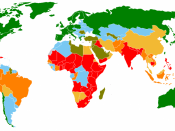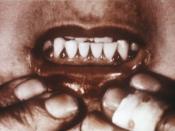Most of the people consider eating as a process connected to giving themselves a kind of pleasure, others associate it with a way of survival or simply take it for granted, accept it as a given part of their lives without questioning themselves about the real purpose of this "ritual" as we can call it. In fact, why do we have to bother our lifestyle with so complicated, as some may say, questions or issues? The answer is: because it is not just for our entertainment, people have to be aware that our health is a consequence from the food we consume; the way we combine different essential kinds of food may be crucial and sometimes result in irreversible diseases and effects. That is why we have to pay special attention to the possible outcomes from an unbalanced diet. Because as Hippocrates says:" Positive health requires knowledge of man's primary constitution and the powers of various foods."
First of all, I have to stress on the fact that without food we cannot exist. It is our source of energy and enables us to perform all the different processes throughout our body. The various kinds of food which are called nutrients (such as carbohydrates, proteins, fats, vitamins, minerals and water) are the basis for a balanced diet and in case of an absence of even only one of these compounds may lead to deterioration of our health, especially when this deficiency continues in a long period of time without taking any measures to avoid it!
So let us start with the function of the carbohydrates. They are the major source of energy and both undernutrition and overnutrition effects in bad results on the body. Examples of foods rich in carbohydrates are starches, dietary fibers, sugars like pasta, bread, wholegrain products, rice,


